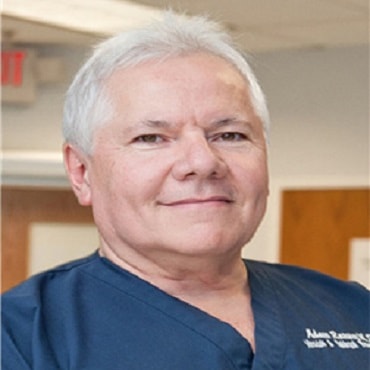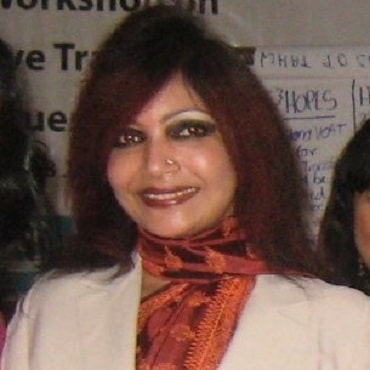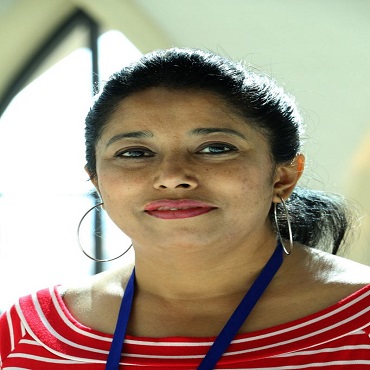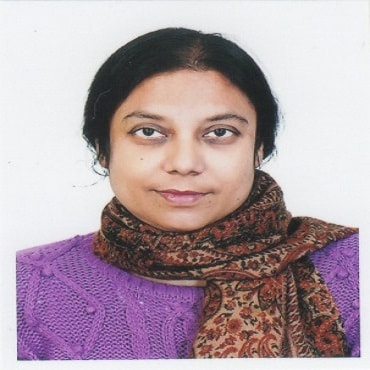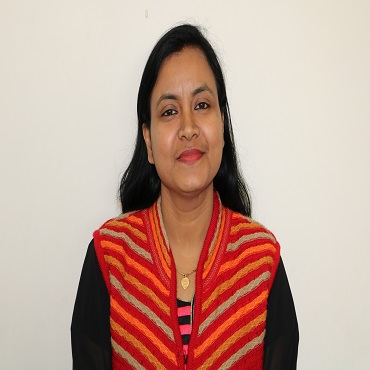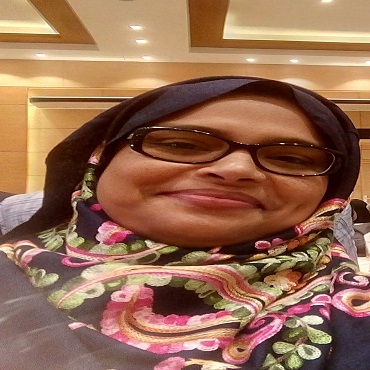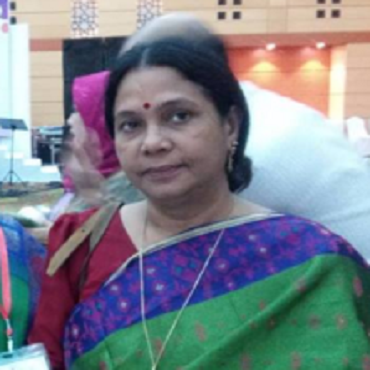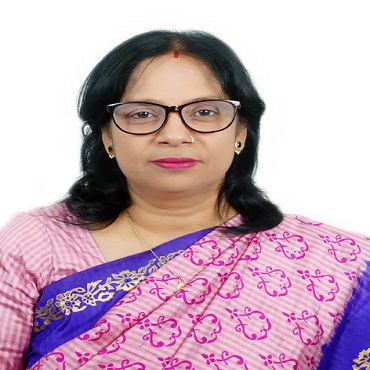
Gynecology 2019

Theme: Exploring new insights in the life journey of women
Gynecology 2019, which will be held during June 21-22, 2019 at Osaka, Japan. It will emphasize on the theme exploring new insights in the life journey of women. Gynecology 2019 will serve an excellent experience and opportunities to enhance one's career. Join us in Osaka to exchange various innovative approaches in gynecology and obstetrics. Gynecology 2019 aims to reveal advances in women’s healthcare and different management for women health disorders. This conference will be an inestimable and important platform for motivating international and integrative exchange at the forefront of gynecology. Over the course of 2 days, internationally-renowned speakers will exemplify how their research exploration has developed in response to present day challenges. The attending professionals and industry associates will also provide exotic networking experience. The array of talks, poster presentations, workshops, discussions and networking events will keep participants intended in learning and making innovative connections at Gynecology 2019. The Conference will assemble together gynecologists, academicians and obstetricians from all over the world.
Meetings International produces high quality conferences, meetings, workshops and symposia in all major fields of science, technology, pharmacy and medicine. Since its inception, Meetings Int. has been associated with national and international associations, corporations and high level individuals, dedicated to host world class conferences and events. Meetings Int. supports broad scope research and peer review at a broad range of specialists around the world. The key strategic objective of Meetings Int. is to communicate science and medical research between academia and industry.
Gynecology and obstetrics can influence the complete being of a woman and women’s healthcare, different stages of reproduction and its disorders. Gynecology 2019 constitutes cause, care, screening, diagnosis, therapies, treatment and surgeries in the field of gynecology and obstetrics.
Gynecology 2019 gathering expects to unite driving scholastic researchers, inquire about researchers, understudies, representatives and exhibitors to trade and offer their encounters, look into comes about all parts of gynecology streams. It additionally gives the chief interdisciplinary gathering to specialists, professionals and instructors to show and examine the latest developments, patterns, and concerns, common sense difficulties experienced and the arrangements embraced in the field of gynecology.
Target Audience:
Gynecologists
Surgeons
Oncologists
Radiologists
Scientists and Professors
Women’s Healthcare Researchers
Healthcare Faculty
Medical Colleges
Healthcare Associations and Societies
Business Entrepreneurs
Training Institutes
Software developing companies
Students Researchers
Why to Attend?
With members from around the world focused on learning about women’s health and its advances; this is your best opportunity to reach the largest assemblage of participants from the women’s health community and the world like societies, researchers, universities and PhD scholars. Conduct presentations, distribute information, meet with current and potential scientists, make a splash with new discoveries in the breast cancer treatment, diagnosis, stages of reproduction and receive name recognition at this two day event. World-renowned speakers, the most recent techniques, developments, and the newest updates in advances in gynecology and obstetrics, menopause, gynecological oncology, assisted reproductive technology, women disorders are hallmarks of this conference.
Benefits of Attending:
Networking Opportunities, Grow Your Professional Network
Build Your Knowledge Base
Expand Your Resources
Meet Experts & Influencers Face to Face
Learning in a New Space
Break Out of Your Comfort Zone
New Tips & Tactics
Session 1: Advancements in Gynecology and Obstetrics
Gynecology referred as the science of women is a branch of medical science which deals with the female reproductive systems. Obstetrics is also a branch of medical science, basically deals with pregnant women i.e stages before child birth, during and after child birth. Both gynecology and obstetrics is a education dedicated to the women’s healthcare during medication and surgery throughout their life. These need extensive study and understanding the physiology of reproduction, including the physiologic, social, cultural, environmental and genetic factors that determine disorders in women. This study and understanding of the reproductive physiology of women gives obstetricians and gynecologists a unique attitude in addressing gender-specific health care issues. Advances in women health include Increased genetic testing. The prevalence of obesity in teenage and adult women and the steep rise in the number of caesarean deliveries. Obstetricians and gynecologist shall realize and exhibit the appropriate knowledge, skills and attitudes to assess women by means of clinical history taking and physical examination as the examination of neck, chest, breast, abdominal, lower limb examination for both pregnant and non-pregnant women.
Session 2: Urogynecology
Urogynecology is a subspecialty branch in medical science that deals with women who are unable to hold urine and stool and may be with damaged pelvic floor. This causes looseness of the genitalia and mass protruding from the vagina. It also deals with cosmetic correction of the genitalia, and atypical problems like lower abdominal pain. Female contemporary urogynecological practice encourages multidisciplinary teams working in the care of patients, with collaborative input from urogynecologists, urologists, colorectal surgeons, elderly care physicians, and physiotherapists.
Session 3: Gynecological Oncology
Gynecological Oncology is a special field of oncology department that mainly comprises different cancers in the female reproductive system. The specialists are trained in the prevention, diagnosis and treatment of these cancers. Gynecologic cancers affect a woman’s reproductive organs, including cervix, uterus, ovaries, fallopian tubes, vagina and vulva. A gynecologic oncologist is a physician first trained in obstetrics and gynecology who has an additional three to four years of training in gynecologic cancers including advanced surgery techniques and chemotherapy administration. These gynecologic oncology specialists use these skills to treat cancers of the female reproductive system.
Session 4: Gynecological Surgery
Gynecological surgery specify surgery on the female reproductive system. It is usually achieved by gynecologists and obstetricians. It includes operation for benign conditions, cancer, infertility, and incontinence. The speciality has gone through major changes over recent decades and now gynecologic surgery is performed and shared by many colleagues. Obstetrics and gynecology generalists who perform a wide range of surgical interventions and sub-specialists whose expertise lies in specific areas although such professionals may also serve on a generalist obstetrical roster while “on call.”
Session 5: Reproductive Medicine
Reproductive endocrinology and infertility is a surgical proof obstetrics and gynecology that trains physicians in reproductive medicine addressing hormonal functioning as it pertains to reproduction and the issue of infertility. Most REI specialists deals with the treatment of infertility and reproductive endocrinologists are also trained to evaluate and treat hormonal dysfunctions in females and males outside infertility.
Session 6: Infertility/Assisted Reproductive Technologies
Infertility is the inability to fertilize or impotence of a person to reproduce by natural means. It is not the natural state of a healthy adult, except notably among certain eusocial species. Infertility is defined as unable to get pregnant after one year of unprotected sex. Artificial technique to achieve pregnancy in procedures such as fertility medication, in vitro fertilization and surrogacy is known as Assisted reproductive technology also referred as fertility treatment. It is reproductive technology mainly used for infertility treatments. It mainly belongs to the field of reproductive endocrinology and infertility, and may also include intracytoplasmic sperm injection and cryopreservation. Assisted reproductive technologies like rrtificial insemination, superovulation, in-vitro fertilization, embryo transfer have been introduced to overcome reproductive problems, to increase the offspring from selected females and to reduce the generation intervals in farm animals.
Session 7: Menopause
Menopause is the biological process through which a woman halt to be fertile or menstruate. It is a normal part of life and is not referred a disease or a condition and last for 50 years in women. Different treatments for menopause-related disorders and symptoms include advice for lifestyle, hormone replacement therapy, herbal treatments, other complementary therapeutics and antidepressants.
Session 8: Birth Control
Birth control, also known as contraception and fertility control, is a method or device used to prevent pregnancy. Different forms of birth control have different side effects and risk profiles. The choice of birth control method depends on many factors, such as the desire for reversible birth control (preserving future fertility) or permanent birth control methods (surgical sterilization). Some birth control methods, such as barrier methods, may offer some protection against sexually-transmitted diseases (STDs), while most methods do not. Some birth control methods have higher success rates than others, but no method of birth control is 100% effective in every case.
Session 9: Maternal Fetal Medicine
Maternal fetal medicine is a science of medicine that deals with maintenance of the health of the mother and fetus during and after child birth. The specialists in this field are those physicians who are experience in the work of obstetrics. Maternal and infant mortality rates due to barrier of pregnancy have decline by over 23% since 1990, from 377,000 deaths to 293,000 deaths. Most of the deaths occurred due to infection, maternal bleeding, and obstructed labour, and their incidence of mortality vary widely internationally.
Session 10: Women’s Health & Emergency Maternal Care
Most maternal deaths result from excessive bleeding, infections, hypertensive disorders, obstructed labor, or complications from unsafe abortions. Sadly, these emergencies are often difficult to predict. Efforts to reduce these deaths have included strengthening access to prenatal care, improving women’s nutrition, trying to identify high-risk pregnancies early, and training traditional birth attendants.
Session 11: Cosmetic Gynecology
Cosmetic Gynecology has become one of the fastest growing subspecialties of elective surgery for women and includes specialists in gynecology, urogynecology, urology, and plastic surgery. This area of special interest includes both cosmetic procedures to enhance the aesthetic appearance of the vulvo/vaginal region, as well as functional vaginal repairs to enhance or help restore sexual function following the changes that may occur following childbirth and/or aging.
Session 12: Pediatric and Adolescent Gynecology
A woman's body is very different and more developed than the body of a young or adolescent girl, and the gynecologic problems of younger females need special expertise. The division of pediatric and adolescent gynecology provides medical and surgical management of gynecologic problems in newborns to patients up to 26 years old.
A Gynecologist and Obstetrician provide care to women from the time they get pregnant and right through pregnancy till after the baby is born. OB-GYNs are essentially specialists in two different but related fields – obstetrics and gynaecology. While gynaecology deals with a broad spectrum of issues relevant to women and their reproductive health, obstetrics deals with delivering and monitoring the health of newborns. To be able to address all the health issues that affect women, many women’s health specialists choose to practice obstetrics and gynaecology simultaneously.
The global women health market was esteemed at USD 36.5 billion out of 2016 and is expected to develop at a CAGR of 3.9% over the conjecture time frame. Expanding female geriatric populace, undesirable way of life, positive government approaches and activities by private associations, alongside the presentation of new medicines for ladies are factors in charge of development. On the idea of application, the women’s health market has been segmental into biological time pathology, sterility, adenomyosis, contraceptives, menopause, polycystic ovary syndrome, cervical intraepithelial neoplasia, endometriosis, fibroids, human papillomavirus, infertility, menopause, ovarian failure, pelvic inflammatory disease, amenorrhea, dysmenorrhea.
List of Hospitals in America
Mayo Clinic, Minessota
University of Michigan Hospitals-Michigan Medicine, Michigan
Memorial Sloan-Kettering Cancer Center, New york
Johns Hopkins Hospital, Maryland
Cleveland Clinic, Cleveland
UCSF Medical Center, California
Stanford Health Care-Stanford Hospital, California
List of Hospitals in Europe
IASO Maternity Hospital, Obstetrics – Gynecology, Greece
The National Maternity Hospital, Dublin
North Cyprus IVF Centre, Nocosia
Hug Maternity, Geneva
Cliniques De L'europe
European Medical Clinic, Moscow
Cliniques de l'Europe-Site St-Elisabeth, Belgium
Queen Charlotte's and Chelsea Hospital, England
St James's University Hospital, England
List of Hospitals in Asia
Tokyo Women's Clinic, Japan
Iwata Obstetrics And Gynecology Clinic, Japan
NSCMH Medical Centre,Seremban, Malaysia
Rainbow Children’s Clinic, India
Christ The Redeemer Clinics, India
OGSB Maternity Hospital, Bangladesh
Japan Bangladesh Friendship Hospital, Bangladesh
Gynaecology Centres Australia Wollongong, Australia
Gynaecology Centres Australia Sydney, Australia
List of Associations in America
ACOG: The American College of Obstetricians and Gynecologists
American Association of Obstetricians and Gynecologists Foundation
Association of Reproductive Health Professionals
The North American Menopause Society
Resolve: The National Infertility Association
Women's Health Associates a division of Mid America Physician Services
List of Associations in Europe:
International Society of Ultrasound in Obstetrics and Gynecology (ISUOG)
Miss Claire Mellon & Associates
Gynaecology and Fetal Medicine London
International Federation of Gynaecology & Obstetrics
FIGO | International Federation of Gynecology and Obstetrics
EBCOG: European Board and College of Obstetrics and Gynaecology
List of Association in Asia:
Dr J J Chee Obstetrics & Gynaecology Pte. Ltd
Obstetrical & Gynaecological Society of Singapore (OGSS)
Dubai Gynaecology & Fertility Centre
Prime Medical Center, Jumeirah – Dubai
Australian Gynaecological Endoscopy & Surgery
- Advancements in Gynecology and Obstetrics
- Urogynecology
- Gynecological Oncology
- Gynecological Surgery
- Reproductive Medicine
- Infertility/Assisted Reproductive Technologies
- Menopause
- Birth Control
- Maternal Fetal Medicine
- Women Health & Emergency Maternal Care
- Cosmetic Gynecology
- Pediatric and Adolescent Gynecology
- Andrology & Gynecology: Current Research
6 Organizing Committee Members
9 Renowned Speakers
Monika Mohanta
Jessore Medical College & Hospital
Bangladesh
Huang Wei Ling
Medical Acupuncture and Pain Management Clinic
Brazil
Asma Habib
Bangladesh Medical College and Hospital
Bangladesh
Lianne Mendoza
Far Eastern University- Nicanor Reyes Medical Foundation
Philippines
Pratima Rani Biswas
Railway General Hospital Dhaka
Bangladesh
Lisa Rogo-Gupta
Stanford University
USA
Stefan Maria Schneyer
Department of Gynecology CH Millau
France
Mala Banik
Sir Salimullah Medical College
Bangladesh
Christos Tsitlakidis
Consultant Obstetrician and Gynaecologist
UK

